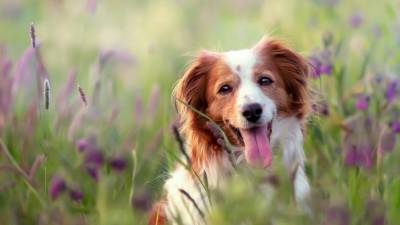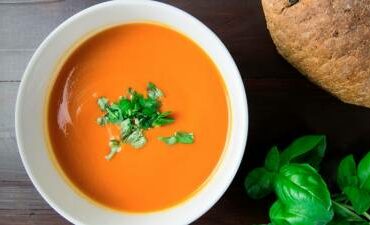A WELL-BALANCED diet is essential for maintaining the health and well-being of our canine companions. While there are numerous human foods that dogs can safely enjoy, there are also several others that should be strictly avoided due to their potential to cause severe health issues. To ensure your furry friend’s safety, it’s crucial to be aware of these potentially harmful foods and to keep them out of your dog’s reach.
Avocado
Avocado contains a substance called persin, which is toxic to dogs in large amounts. While the flesh of an avocado is not as harmful, the pit, skin, and leaves contain higher concentrations of persin. Ingestion can lead to vomiting, diarrhoea, and even pancreatitis. It’s better to err on the side of caution and keep avocados away from your dog.
Grapes and raisins
Grapes and raisins might seem harmless, but they can cause kidney failure in dogs. Even a small amount can lead to serious health issues such as vomiting, lethargy, and a loss of appetite. The exact compound responsible for this toxicity is not yet understood, so it’s best to avoid feeding grapes and raisins altogether.
Fatty foods
Fatty foods, especially those that are cooked or fried, can lead to pancreatitis in dogs. Pancreatitis is a painful inflammation of the pancreas that can cause vomiting, diarrhoea, abdominal pain, and, in severe cases, organ failure. Avoid feeding your dog fatty scraps from the table and opt for dog-appropriate treats instead.
Bones from cooked meat
While it might seem natural to give your dog a bone to chew on, cooked bones can be hazardous. They can splinter and cause choking, blockages, or even punctures in the digestive tract. Instead, offer specially designed dog-safe chews or raw bones that are less likely to splinter.
Chocolate
Chocolate is a treat humans love, but it’s toxic to dogs. It contains theobromine and caffeine, both of which are stimulants that dogs metabolise more slowly than humans. Ingesting chocolate can lead to symptoms ranging from vomiting and diarrhoea to seizures and even death. Dark chocolate and baking chocolate are especially dangerous due to their higher theobromine content.
Alcohol
Alcohol, even in small amounts, is highly dangerous for dogs. Dogs’ bodies are not equipped to process alcohol, leading to symptoms such as vomiting, diarrhoea, coordination problems, and even coma. Ingesting alcohol can also lead to respiratory failure and death.
Caffeine
Caffeine is present in various products, such as coffee, tea, energy drinks, and certain medications. Just like chocolate, dogs metabolise caffeine more slowly than humans. Ingesting caffeine can lead to restlessness, rapid breathing, heart palpitations, and even death in severe cases. Keep your dog away from any caffeine-containing products.
High-salt foods
Excessive salt intake is harmful to dogs, just as it is to humans. Foods high in salt, such as salty snacks, can lead to sodium ion poisoning, which can cause symptoms like excessive thirst, urination, vomiting, diarrhoea, tremors, seizures, and even death. Avoid feeding your dog salty human foods and opt for healthier treats.
Onions and garlic
Onions and garlic, whether cooked, raw, or powdered, contain compounds that can damage a dog’s red blood cells, leading to anaemia. Prolonged or repeated exposure can have serious consequences. While small amounts might not immediately cause harm, it’s best to avoid these ingredients altogether to prevent any potential health risks.
A nutritious and safe diet is paramount to your dog’s overall health and happiness. Being aware of the foods that can harm your furry friend is an essential aspect of responsible pet ownership. You’ll be taking proactive steps to safeguard your dog from potential health hazards. When in doubt, consult your veterinarian for guidance on what foods are safe and appropriate for your canine companion. Your dog’s well-being is well worth the effort.









